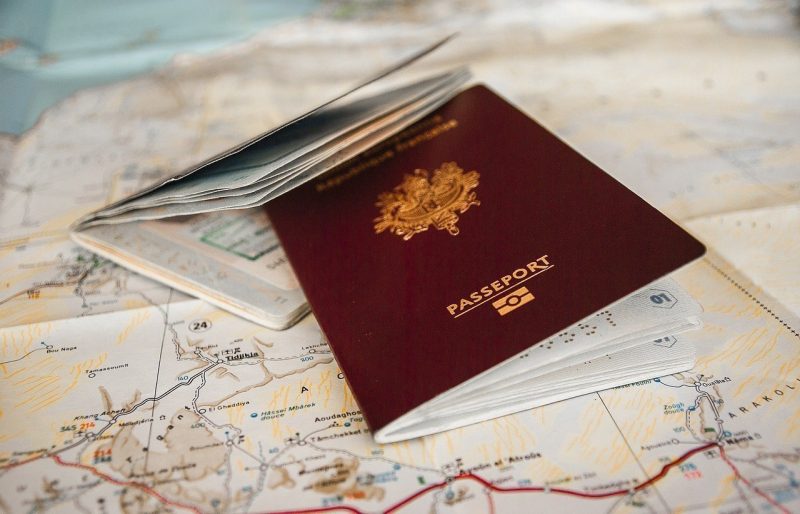Knowing how to protect your travel documents, such as passports, IDs and visas, is essential to have your travel stress free. Losing or damaging any of travel related documents can mean anything, from minor inconvenience to ruined holidays and bad memories. Let’s see what we can do to protect your travel documents and although many of the tips here might sound common sense, it is good to revisit them and relearn them.
Essential travel documents
This is the list of essential travel documents you might need for your next trip:
- Passport (with visas, if needed)
- National ID (or any other photo ID to be used for identification, in case of loss of passport)
- Driving license (if planning of renting a car, or as an additional identification document)
- Credit cards (not actually directly travel related, but very useful and practical)
- Health certificate for COVID-19 or similar vaccination booklet (this is becoming reality)
- Travel insurance, health insurance or any additional special document you might need (international car insurance, if you are travelling with your own car)
- Any other travel related documents, such a flight/hotel/package bookings, important travel info contacts, addresses, embassy info, etc.
As you can see, the list is quite long, and each of these documents is almost as important as your passport. That’s why we need to learn how to protect them before, during and after our travels.
Your travel documents before the travel
Make sure all travel documents are valid
Taking care of your travel documents starts before your travels. You need to make sure all your documents are up to date and valid, especially passports, visas, IDs and driving licenses. All of these have validity date which makes them very much unusable when they expire.
For an example, many countries require for your passport to be valid for at least three months from the date of entry (some of them even require six months), so if your passport is about to expire in few months, please renew/extend it before the trip.
The same goes with other dated documents, ID, driver’s license, visas, they need to be valid for the duration of your trip.
In addition to this, you might need to obtain international driving permit if you are planning to rent a car abroad.
Here is handy info about international driving permit.
Even if you are not planning to rent a car, valid driving license can be handy – if you change your mind and want to rent a car or in case of emergency and you need to rent a car and move quickly.
Most of the countries have online visa application process and this makes it easier to apply and obtain visa well in advance of your trip. Some countries issue visa on entry, where you bring necessary documents, pay the fee and get visa at the airport. For some countries (very few), visa needs to be obtained from their embassy or consular representative and this might create extra work and time waste, but it is better to sort out this before the trip as this is an obvious show stopper.
For more info on visa requirements around the world, click here.
Pro tip: Take a note of a location and contacts of your embassy in the countries you are visiting; they would be of great help if anything bad happen to you during your travel.
Make copies, paper and digital
Making copies of your essential travel documents is important part of protecting them, as even a copy can be very useful in case you lose or destroy any of your documents. Consider making digital copies (scan or a digital photos) and store them in the Cloud (Apple, Google, OneDrive, etc) so even if your electronics is lost or stolen, you can retrieve this information easily. A good photo of your passport and your picture ID with your phone camera would do in case of emergency.
Pro tip: Please do not make copies of your credit cards; if misplaced or stolen, you can get in trouble, even more than if somebody get hold of your other travel related documents.
Write down your document numbers
Every travel related document has a unique number and expiry date (passports also have an issue date). Writing those numbers down can also help if you happen to lose any of the documents, as numbers can be used to retrieve original documents from government archives or insurance databases.
Having passport numbers and expiry dates is also very useful when you need to check in online as some airlines require this info.
Your travel documents during the travel
To protect your documents during actual travel time you have to pay attention to three things:
- not to lose or misplace any of the travel documents,
- not to have documents stolen from you
- not to damage or destroy your documents
In order not to lose or misplace travel documents, you need to pay attention and keep documents close to you, money belt, document bag, special pocket in your back or clothes. This is in case you are backpacking and moving a lot. If you are staying in a hotel or other rental accommodation, you should keep your travel documents in hotel safe (if there is a one in your room) or inside a safe place in your accommodation (given that accommodation is safe and robbery free).
If you are not confident in leaving your documents back in a hotel, at least try and split them and keep passport in the hotel and ID or driving license on you as to split the risk of losing all the documents at once (which would be terrible experience during the holidays), or bring all your documents with you in a secure money/document belt or document purse which you will always take good care of. Downside of this approach is that documents get worn out faster than usual.
The last but not the least detail about keeping document safe is to prevent them from being destroyed accidentally, from water, fire or regular wear and tear, so we advise to get some protective sleeve, especially for your passport(s). Passports are documents that will follow you throughout your trips on average for 10 years (normal validity of most of the passports) and taking good care of them is an imperative. You can check various travel gear and gadget in our Travel Gear Shop.
Your travel documents after the travel
Once you are back home, double check all your documents to confirm if they are in a good shape and not damaged, worn out and if their validity is still OK. If they are to expire soon, renew them as soon as possible as you probably don’t know when is next wanderlust coming your way! 🙂
Similarly to other stages of your trip, now you need to keep your travel documents safe until your next adventure, so you are ready to go without a stress.
Conclusion
It is important to remind yourself how to protect your travel documents, even if you are seasoned traveler. Little reminders like ones this post will go a long way and hopefully will make your travels stress free and enjoyable. All the recommendations we listed above take very little time and effort, but will sure save you from major headache and ruined holidays.
Safe travels and see you soon!


